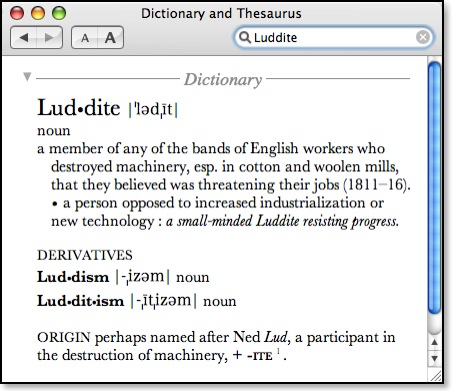First They Won't Let Us Browse the Stacks; Then They'll Turn Us Into Batteries and Throw Us Into the Matrix

The new library at Chicago State University has one ironclad rule: No students allowed in these stacks – only robots. Every book, CD, and DVD in the school’s $38 million facility is tagged with a radio-frequency ID chip. When a borrowed item slides through the return slot, the system identifies and sorts it. Human librarians shelve post-1990 materials in the traditional stacks and drop older stuff into file-drawer-sized bins. From there, it’s all robots – tall, forklift-style machines that run on tracks and stow the materials in a three-story-high storage facility. No Dewey decimals? No problem. The computer knows where everything is and can hustle the correct bin to the circulation desk for checkout.
And if the software crashes? “Libraries are highly networked,” says dean Lawrence McCrank. CSU’s database is backed up at the Online Computer Library Center in Dublin, Ohio, and the University of Illinois at Urbana-Champaign. “We were building databases with integrated retrieval before there were computers,” McCrank says. “They were called card catalogs.”
Robotic Librarians by the Numbers
- Top speed of CSU’s robotic librarians: 7 mph
- Average time for a robot to retrieve five books: 2.5 minutes
- Average time for a student to retrieve five books: 2 hours
- Capacity of CSU’s high-density storage: 800,000 volumes
- Robots making out in the stacks: 0
– Erin Biba

This is also why I favor the Dewey Decimal system which is a giant index of subject matter if you understand how it works. But even Library of Congress stacks have similar books together. But such random chance and serendipitous discoveries would be a thing of the past at robotic-only collections. Call me a Luddite if you will, but I just don't like it.
This is surely the first wave of the robotic revolt--taking away our ability to completely access knowledge and make chance discoveries. When you wake up one day and find that something just doesn't feel right about the virtual world you live in, be sure to take the red pill.









